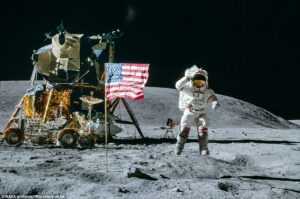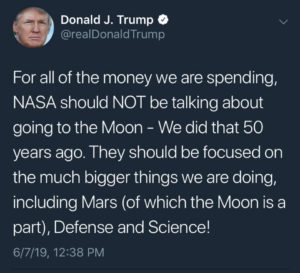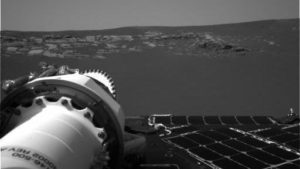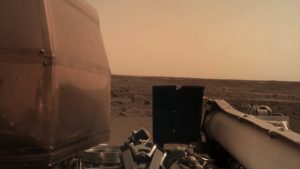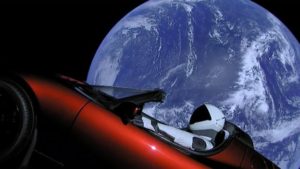My sappiness came through once again this evening.
I just watched a PBS broadcast, the third part of a series called “Chasing the Moon.” It told the story of the Apollo 11 mission to land on the lunar surface, an event that occurred 50 years ago this month.
On July 20, 1969, Neil Armstrong and Edwin “Buzz” Aldrin stepped off a space ship onto the moon’s surface and took what Armstrong called “one small step for (a) man, one giant leap for mankind.”
My eyes got wet. I swallowed hard. I found myself smiling at the TV as I relived the images we had seen a half-century ago.
I remembered how I felt at the time in the summer of 1969. I felt proud. I was thrilled that we had kept President Kennedy’s pledge to “land a man on the moon and return him safely to the Earth” by the end of the 1960s. The president didn’t live to see it happen, but the program proceeded even after the young president’s shocking death.
I do wish we could regain that spirit of adventure. I fear we have lost it forever. Indeed, as the PBS program noted, interest in the moon missions began to dissipate almost immediately after Armstrong, Aldrin and Michael Collins finished their final parade in the final foreign capital. They were treated as the heroes they were.
Then the money dried up. Sure, we conducted a few more missions, including that harrowing Apollo 13 mission that came too close to tragedy.
Maybe that thrill will come back to us if and when we prepare to launch humans to Mars.
Watching the PBS broadcast tonight, though, reminded me of how I used to swell with pride at our technological know-how and the courage of the individuals we would hurtle into outer space.
I am hoping to feel it again.
